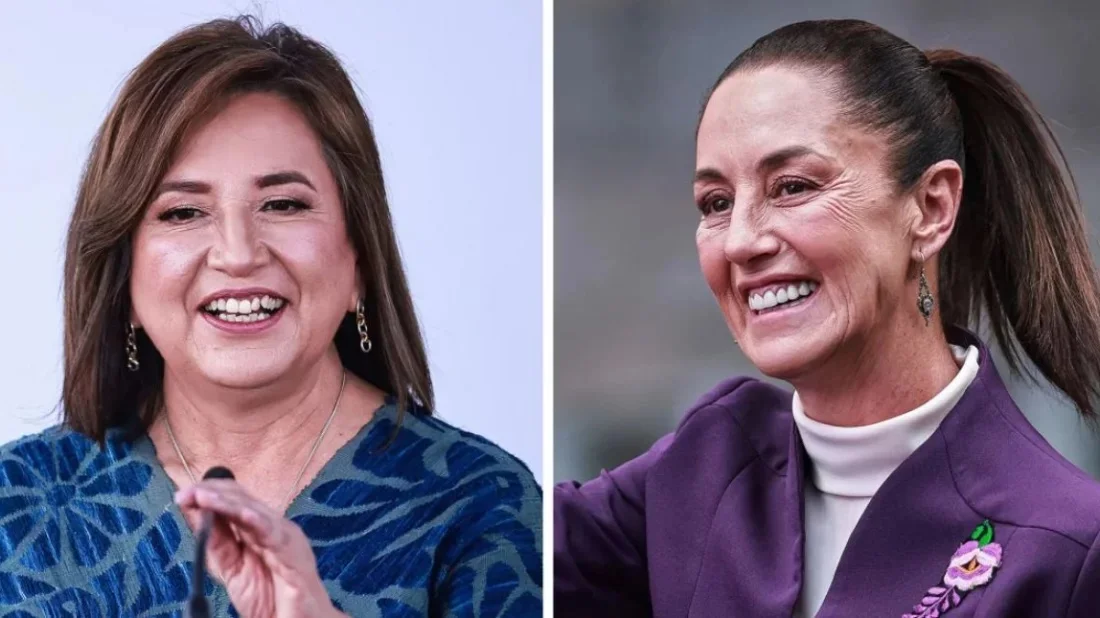In historic first, Mexicans expected to elect woman president
Share on:

Watershed moment for country with history of gender discrimination
Millions of Mexicans are expected to vote for their first woman president in a landmark election on Sunday, following a long and sometimes acrimonious race overshadowed by soaring political violence.
In a watershed for a country with a long history of gender discrimination, two women have dominated the contest to lead the world's most populous Spanish-speaking country.
Addressing a cheering crowd of thousands at her closing campaign rally, ruling party candidate Claudia Sheinbaum said Mexico was going to "make history" on Sunday.
"I say to the young women, to all the women of Mexico -- colleagues, friends, sisters, daughters, mothers and grandmothers -- you are not alone," the 61-year-old said.
Her vow to champion women's rights was music to the ears of Evelyn Trasvina.
"I'm very excited," said the 42-year-old accountant from western Mexico.
"Many people have been lifted out of poverty and one of the promises is the recognition of women's unpaid work," she told AFP.
Sheinbaum, a former Mexico City mayor and a scientist by training, was leading her main opposition rival Xochitl Galvez, also 61, by around 17 points in opinion polls days before the election.
Nearly 100 million people are registered to vote in the country of 129 million, and 61-year-old housewife Rosa Maria Miranda said that criminal violence meant Galvez would get her support.
"We women are fed up. We're afraid to go out into the streets," she said.
Bloodstained race
The campaign season ended on a tragic note Wednesday when a gunman shot dead an aspiring mayor in the southern state of Guerrero.
The attack brought the number of local politicians who have been murdered to at least 24 during what has been a particularly violent electoral process, according to official figures.
Some non-governmental organizations have reported an even higher toll, including Data Civica, which has counted around 30 killings.
Sheinbaum has pledged to continue outgoing President Andres Manuel Lopez Obrador's controversial "hugs not bullets" strategy of tackling crime at its roots.
Galvez, meanwhile, promised a tougher approach to cartel-related violence.
"You will have the bravest president, a president who does confront crime," the outspoken senator and businesswoman with Indigenous roots told her closing rally in the northern city of Monterrey.
She accused Lopez Obrador of implementing "a security strategy where hugs have been for criminals and bullets for citizens."
Commanding lead
Sheinbaum owes much of her popularity to Lopez Obrador, a close ally who has an approval rating of more than 60% but is only allowed to serve one term.
It is almost a year since the contest for the ruling party nomination got underway, with Sheinbaum crisscrossing the country to meet supporters.
The ruling party candidate had the backing of 53% of voters as campaigning drew to a close, according to a poll average compiled by research firm Oraculus.
Galvez, who lashed out at her main rival in a series of televised presidential debates, calling her an "ice lady" and "narco-candidate," was second with 36%.
The only man running, 38-year-old centrist Jorge Alvarez Maynez, had just 11%.
Tackling the cartel violence that makes murder and kidnapping a daily occurrence in Mexico will be among the major challenges facing the next leader, along with managing migration and delicate relations with the neighbouring United States.
More than 450,000 people have been murdered and tens of thousands have gone missing since the government deployed the army to fight drug trafficking in 2006.
While Mexican women enjoy growing success in politics and business, gender violence remains a major problem in a country where around 10 women are murdered every day.
And while millions of Mexicans have escaped poverty in recent years, more than a third still live below the poverty line, according to official figures.
As well as voting for a new president, Mexicans will choose members of Congress, several state governors and myriad local officials. In total, more than 20,000 positions are being contested.

